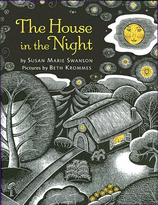Lara Vapnyar
From Lara Vapnyar's 2005 interview at The Bloomsbury Review:
The Bloomsbury Review: I will start with the perennial question. You came to this country when you were 23. I take it you didn’t speak English fluently, even if you studied it as a foreign language in school. They say that the cutoff age for a relatively effortless transition to another language is 15, but you, like Joseph Conrad and Vladimir Nabokov, began writing in a foreign language as an aRead more of the interview.dult. Did you find the switch from Russian to English painful, or did it come to you as naturally as a set of new clothes or a new Internet provider?
Lara Vapnyar: I’ve never written anything in Russian, and never thought of becoming a writer. The switch from no writing to writing was so shocking that it canceled out the shock of writing in a foreign language.
TBR: You are pursuing a PhD in comparative literature. Even though you have not written fiction in Russian, how would you compare the two languages as the literary tool?
LV: I miss the flexibility of Russian, the way you can invent new words in Russian by adding different suffixes and prefixes.
--Marshal Zeringue



































